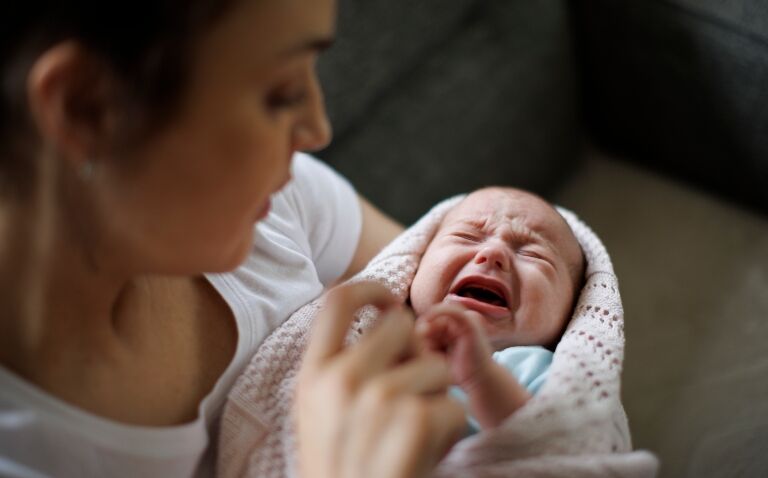Five babies have died from pertussis in England in the first three months of this year, the UK Health Security Agency (UKHSA) has confirmed.
It comes after repeated warnings from public health officials about falling uptake of maternal pertussis vaccination.
The latest figures show rates of pertussis are continuing to rise after a post-pandemic period of low levels of spread.
In March there were 1,319 confirmed cases of pertussis up from 918 in February and 556 in January.
It means almost 2,800 cases in the first quarter of 2024 – more than double what had been seen across the whole of the previous year.
Half were in those aged 15 years or older who usually get a mild illness, but the rates remain highest in babies under three months of age, the UKHSA said.
Cyclical increases in rates of pertussis are expected with the last peak year being 2016, officials said, meaning the increase was overdue based on historical patterns.
But uptake of pertussis vaccination has fallen in England in recent years both for infant and in the maternal immunisation programme.
The number of two-year-olds who completed their 6-in-1 vaccinations as of September 2023 is 92.9%, compared to 96.3% in March 2014, figures show.
And uptake in pregnant women has also dropped from over 70% in September 2017 to around 58% in September 2023.
UKHSA said the calculated maternal vaccine effectiveness against infant death has been updated to include the most recent deaths and remains very high at around 92%.
In March, UKHSA issued warnings to parents of babies and pregnant women to urgently take up offers of vaccination amidst rising cases of pertussis as part of national awareness campaigns.
Dr Gayatri Amirthalingam, UKHSA consultant epidemiologist said: ‘Vaccination remains the best defence against whooping cough and it is vital that pregnant women and young infants receive their vaccines at the right time.
‘Whooping cough can affect people of all ages but for very young babies it can be extremely serious. Our thoughts and condolences are with those families who have so tragically lost their baby.’
NHS national medical director, Professor Sir Stephen Powis, said: ‘With cases of whooping cough continuing to rise sharply across the country, and today’s figures sadly showing five infant deaths, it is vital that families come forward to get the protection they need.’
He also urged pregnant women and the parents of any children who have not received the pertussis vaccination to contact their GP as soon as possible to arrange this, and to ensure that all childhood vaccinations are up do date.
‘If you or your child show symptoms ask for an urgent GP appointment or get help from NHS 111,’ Professor Powis added.
Dr Jonathan Leach, a GP in Bromsgrove, said he remembered pertussis in the early 1980s when he was beginning his career as a doctor.
‘It’s a horrible disease and I have vivid memories of children in [the intensive therapy unit] and afterwards with complications of the disease.
‘Vaccination is effective at preventing it.’
A version of this article was originally published by our sister publication Pulse.










